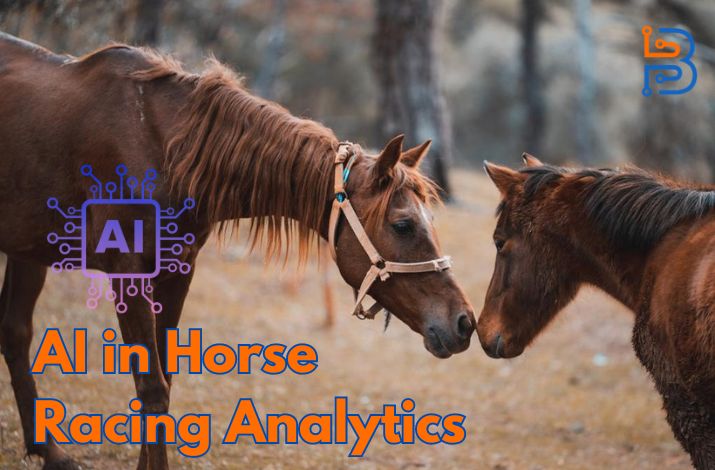Top 10 AI Tools for Small Businesses in 2025 -Save Time & Scale Smart

As a small business owner, your time and resources are limited. That’s why choosing the right AI tools can make a significant difference in your daily operations and long-term growth.
The right solution can help you reduce operational costs, improve efficiency and decision-making, deliver better customer experiences, and scale without hiring large teams.
In this guide, I have explained the top 10 best AI tools for small businesses in 2025, selected for their practical features, ease of use, and ability to deliver measurable value.
Top 10 AI Tools for Small Businesses
After comprehensive research, I have created a list of the best AI tools for small businesses. Now, you have to understand your preferences and pick the one most suitable for you.
1. ChatGPT by OpenAI
ChatGPT remains one of the most versatile AI tools in 2025. Its ability to assist with content creation, customer support, brainstorming, and even coding tasks makes it a wonderful tool for startups and growing companies.
Also, you can write blog posts, draft email sequences, and answer customer queries through this chatbot. Businesses can integrate ChatGPT into their websites or CRM platforms to offer 24/7 customer support and reduce the workload on human agents.
Key features
- Large language model (LLM) architecture
- API access for integration with websites, CRM, and apps
- Supports fine-tuning and prompt engineering for customized outputs
- Multi-turn conversational context handling
- Natural language understanding (NLU) and generation (NLG) capabilities

2. GrammarlyGO
Next, I have placed GrammarlyGo among the best AI tools for small businesses. It combines advanced grammar checking with AI-powered text generation that adjusts tone, clarity, and formality depending on the context.
Moreover, you can use this tool to enhance business emails, social media copy, marketing materials, and internal documentation.
Key features
- Real-time AI-powered grammar and style correction
- Contextual language processing with tone detection
- Integration via browser extensions, Microsoft Office, Google Docs, and APIs
- Cloud-based text analysis and suggestions
- Enterprise-grade data security and user management

3. Jasper AI
Jasper AI is designed specifically for marketing and content creation. It’s a go-to tool for small teams that need to produce large volumes of content without hiring a full editorial staff. Jasper can generate blog articles, ad copy, product descriptions, and social media posts that can align with your brand voice.
Another best part of this tool is that it integrates with tools like Surfer SEO. Hence, it enables businesses to create search-optimized content that ranks.
Key features
- GPT-based content generation with brand voice customization
- SEO integration with Surfer SEO API for keyword optimization
- Workflow automation with content templates and batch processing
- Collaboration tools with version control and team management
- Supports multiple languages and content formats

4. Zoho CRM with Zia AI
Zoho CRM is already a well-known platform among small businesses, and its AI assistant, Zia, makes it even more powerful. Zia can predict sales trends, recommend follow-ups, and analyze customer sentiment from communication history.
Also, it automates workflows, flags anomalies in sales performance, and helps managers focus on the most promising leads.
Key features
- Machine learning algorithms for sales forecasting and trend analysis
- Natural language processing for sentiment analysis in emails and chats
- Workflow automation via drag-and-drop rules engine
- Anomaly detection using statistical modeling
- API integrations with external sales and marketing tools

5. Canva AI
No doubt, design and branding are essential for small businesses, but many small startups can’t afford a professional designer. However, Canva AI has solved this problem by offering AI-powered design features like Magic Design, Text to Image, and automatic resizing for various platforms.
It enables businesses to create professional graphics, presentations, marketing collateral, and videos to enable businesses to meet the tight deadlines with limited staff.
Key features
- Generative adversarial networks (GANs) for image generation and style transfer
- Text-to-image AI powered by diffusion models
- Responsive design algorithms for automatic resizing and layout adjustments
- Cloud-based collaborative editing and asset management
- Plugin architecture for third-party app integrations

6. QuickBooks with AI
Bookkeeping is among the most crucial tasks for small businesses, and simultaneously, it is the area where many struggle. But this problem won’t persist anymore because of the AI financial forecasting tool, provided by QuickBooks.
It categorizes expenses, generates predictive cash flow reports, and alerts businesses about unusual transactions.
Key features
- Automated transaction categorization via pattern recognition and classification models
- Predictive analytics for cash flow and expense forecasting
- Anomaly detection using rule-based and ML approaches for fraud alerts
- Integration with banking APIs for real-time data sync
- Cloud-hosted platform with compliance to financial data security standards

7. Hootsuite AI
Maintaining a consistent and effective social media presence is a challenge for small businesses. Hootsuite’s AI is the tool that has the potential to solve this issue as it can schedule content and analyze performance to get the most out of social media marketing.
The platform suggests optimal times to post, recommends trending hashtags, and generates post ideas based on industry activity. Hootsuite also offers AI-powered sentiment analysis, which helps brands understand how their content is perceived by audiences.
Key features
- AI-driven scheduling using engagement prediction models
- Sentiment analysis through natural language understanding of social mentions
- Content recommendation engine based on trending topics and historical data
- Multi-channel social media integration (Facebook, Twitter, Instagram, LinkedIn, etc.)
- Analytics dashboard with real-time performance metrics

8. Tidio
Next, I am going with Tidio in this rundown on the top 10 best AI tools for businesses. It is a popular customer communication platform that combines live chat, email, and AI-powered chatbots. The tool enables businesses to respond instantly to inquiries, qualify leads, and automate common support interactions.
Besides, its AI chatbot builder requires no coding knowledge, hence, make it accessible to non-technical business owners.
Key features
- No-code chatbot builder with drag-and-drop conversational flow design
- AI intent recognition using NLP classifiers
- Omnichannel messaging platform integrating live chat, email, and messengers
- Real-time visitor behavior tracking and automated lead qualification
- Webhooks and API access for custom integrations

9. Surfer SEO
For businesses relying on content marketing, visibility in search engines is essential. Surfer SEO uses AI to analyze the top-performing pages for any keyword and provides actionable guidelines on how to improve content relevance and structure.
Small businesses use Surfer SEO to generate SEO-optimized blog outlines, perform content audits, and align articles with user intent.
Key features
- SERP data scraping combined with AI content analysis
- NLP-driven keyword density and content relevance scoring
- Content editor with real-time SEO scoring and suggestions
- Integration with CMS platforms like WordPress and content collaboration tools
- API access for automated audits and reporting

10. Pictory
Video content continues to dominate digital marketing, and Pictory helps small businesses turn existing written content into professional-quality videos. Its AI engine summarizes long-form blog posts, adds visuals, generates subtitles, and even provides voiceovers.
Pictory is ideal for businesses that want to repurpose blogs into YouTube videos, reels, or social ads without hiring an editor.
Key features
- AI video creation using natural language processing to summarize text.
- Text-to-speech with multiple voice options and language support.
- Automated video editing: caption generation, scene detection, and stock footage insertion.
- Cloud-based video rendering and asset storage.
- Integrations with social media platforms and content management systems.

Final Thoughts
These are the details about the top 10 best AI tools for businesses. They not only help small businesses automate repetitive tasks but also gain insights, improve marketing, and provide better customer service.
However, choosing the right AI tools depends on your business goals. Whether you’re looking to scale marketing, reduce operational costs, or streamline communication, there’s an AI tool on this list that can give your business a competitive edge.






